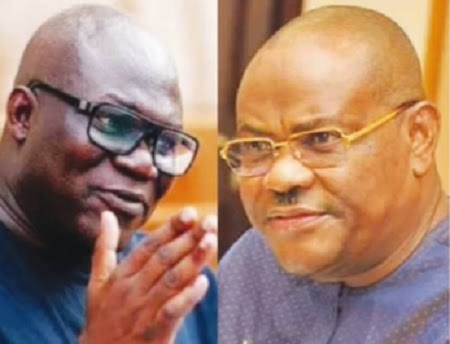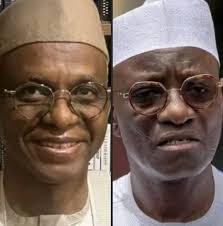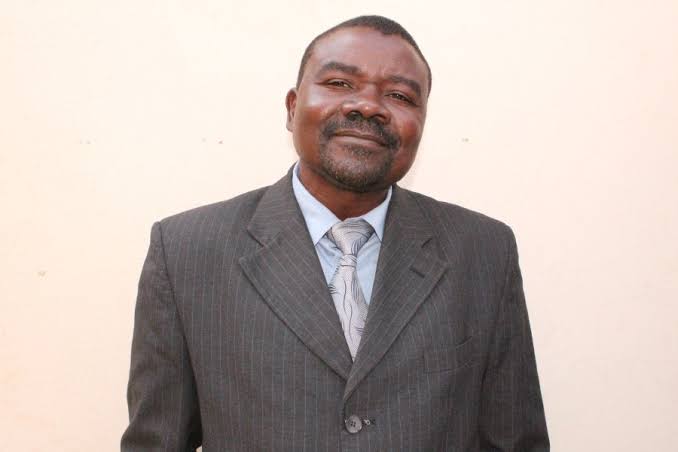Reuben Abati, former presidential spokesperson and prominent broadcaster on Arise Television, has firmly rejected allegations of bias and impropriety leveled against him by Lere Olayinka, a media aide to Nigeria’s Minister of the Federal Capital Territory (FCT), Nyesom Wike.
The rebuttal came in a public statement issued by Abati on Saturday, June 7, 2025, a day after Olayinka appeared on The Morning Show, calling for Abati’s resignation and accusing him of political partisanship.
Olayinka’s appearance followed recent remarks by Abati criticizing Wike’s political conduct. In an earlier broadcast, Abati had described the FCT Minister as “disrespectful and rude” to individuals who had contributed significantly to his political rise. In response, Olayinka accused Abati of serving as a spokesperson for former Rivers State Governor and political rival Rotimi Amaechi, and claimed that Abati had, along with his wife, sought financial support from Wike.
Abati categorically denied the accusations. “I am not Rotimi Amaechi’s spokesperson, nor do I have his phone number. That’s a fabrication,” he said. Addressing the allegation of financial solicitation, Abati stated unequivocally, “I have never approached Minister Nyesom Wike to beg for money. That is a lie.”
READ ALSO: Reuben Abati Denies Allegations of Soliciting Funds from Nyesom Wike
He further clarified that if any individual had solicited money from Wike using his name, it was done without his consent or knowledge. “If anyone — including an ex-partner — went to him under false pretences to solicit funds in my name, I place a clear disclaimer,” he said. “Such actions were not authorised by me, and Minister Wike reserves every right to call it out as fraud.”
Abati also addressed his absence from the June 6 broadcast, which had sparked speculation that he was avoiding Olayinka’s appearance on the program.
He explained that his absence was due to a prior commitment: the review of Oprah Benson: Live and Legend, a 550-page biography authored by Dr. Udu Yakubu. This account was consistent with statements made by his co-host Rufai Oseni, who told viewers on air that Abati had called in sick.
Responding to broader insinuations about his integrity, Abati touched on his past encounter with the Economic and Financial Crimes Commission (EFCC). He said his engagement with the EFCC during a previous administration was routine and did not result in any criminal conviction or demand for repayment. “Like many others, I was invited by the EFCC for questioning — a lawful and procedural engagement,” Abati stated. “At no time was I asked to return any money. In fact, the EFCC under former Chairman Ibrahim Magu later apologised to me.”
The veteran journalist also dismissed Olayinka’s attack as unworthy of serious engagement, saying the two are not equals. “We are not peers. I await a meaningful conversation with Minister Wike, not his proxy,” he said.
Abati reinforced his commitment to public accountability and transparency in governance, emphasizing that his remarks on Wike were grounded in a legitimate expectation of responsibility from public officeholders. “I stand firmly by everything I said regarding Minister Wike. He is a public official occupying a public office. He is, and should remain, subject to public scrutiny,” he concluded.
The exchange underscores ongoing political tensions and the highly charged nature of public commentary surrounding prominent Nigerian politicians. While Wike has yet to personally respond to the controversy, Abati’s statement signals his refusal to be intimidated or silenced by what he describes as attempts at character assassination.
The situation has drawn attention from political observers and the media, highlighting growing friction between government officials and journalists who scrutinize their actions. With both parties holding their ground, the dispute reflects the broader challenges of media independence and political accountability in Nigeria’s democratic landscape.





